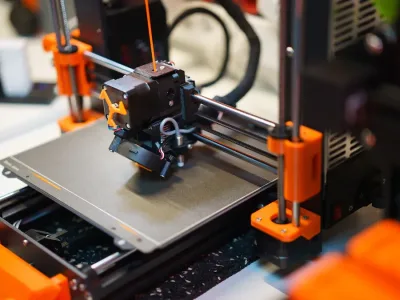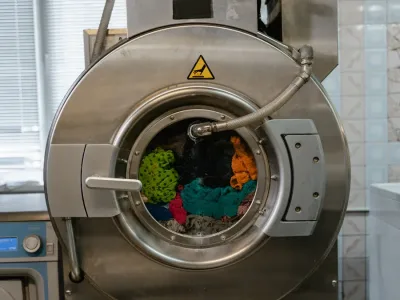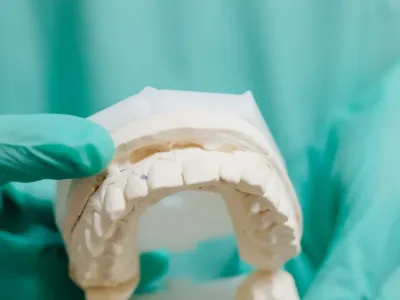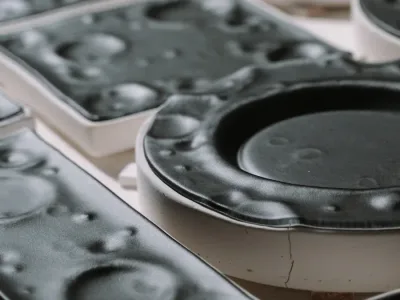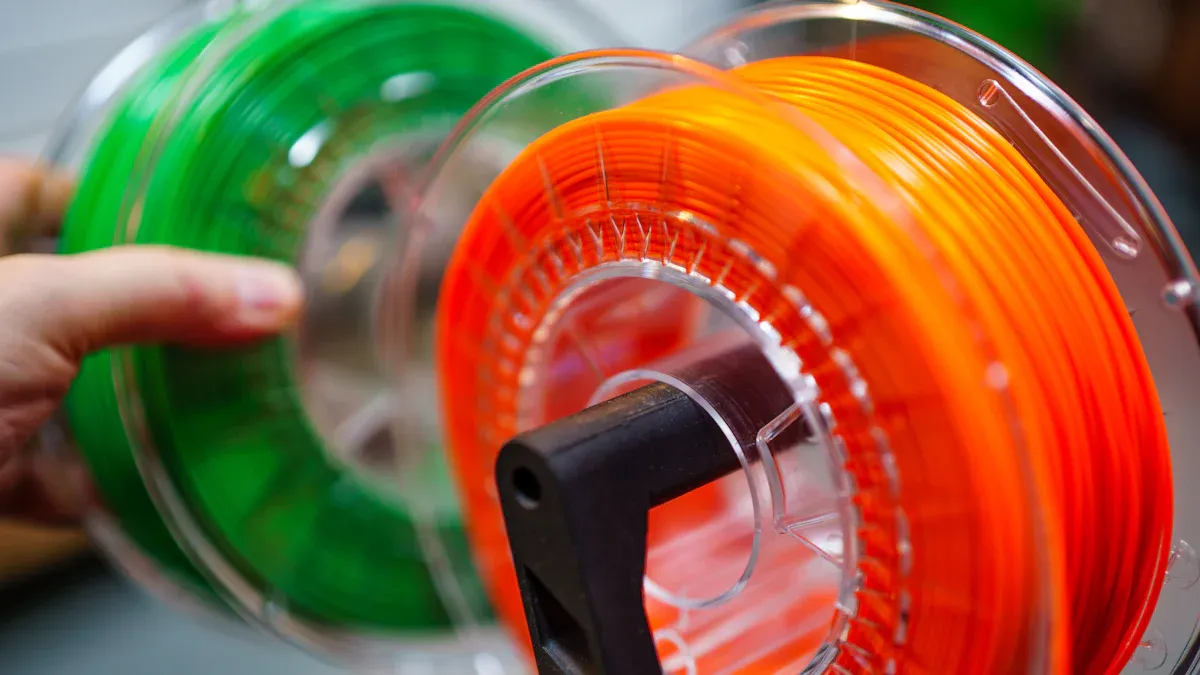
Polyurethane resin is a unique material created by combining specific chemicals. Renowned for its flexibility, durability, and longevity, polyurethane resin is widely utilized across various industries due to its versatility. It offers excellent adhesion, chemical resistance, and impact tolerance, making it essential in applications such as automotive, construction, and electronics. Advances in technology have further enhanced polyurethane resin, enabling it to withstand high temperatures. Its remarkable strength and adaptability solidify polyurethane resin as a cornerstone in contemporary products and designs.
Key Takeaways
Polyurethane resin is strong, bendable, and long-lasting. It works well in building, cars, and electronics.
This material fights off chemicals and scratches. It lasts a long time in tough places, so replacements are needed less often.
Polyurethane resin can be changed to fit special needs. This helps make products for many different uses.
It is light, which saves energy in cars and buildings. This lowers fuel use and cuts down on pollution.
There are eco-friendly types of polyurethane resin. They work just as well and are better for the planet.
What is Polyurethane Resin?
Overview of Polyurethane Resin
Polyurethane resin is a material known for being useful and strong. It is used in many industries because it solves different problems. This resin is tough, bendable, and resists damage from chemicals. It works well in busy areas, outside spaces, and places with harsh substances like oil or acid.
One amazing feature is its ability to handle bad weather. Polyurethane resin resists UV rays and extreme conditions, making it great for outdoor use. It also sticks well to metal, plastic, wood, and concrete. This makes it easy for manufacturers to adjust it for specific jobs, like in construction, cars, or electronics.
Tip: Need something strong, flexible, and tough? Polyurethane resin is a great pick.
Basic Composition and How It’s Made
Polyurethane resin is made by mixing two main chemicals: isocyanates and polyols. These chemicals react to create a special material with unique features. Think of it like a recipe where changing ingredients gives different results.
The process starts by combining isocyanates and polyols. Changing the amounts changes how soft, hard, or strong the resin is. For example, more polyol makes it softer, while more isocyanate makes it tougher.
After mixing, the resin hardens into its final shape. Heat or special additives can speed this up, depending on what’s needed. The finished resin can be shaped, sprayed, or poured for different uses.
Note: Polyurethane resin is popular because it can be customized for many uses.
Key Properties of Polyurethane Resin
Durability and Strength
Polyurethane resin is very strong and lasts a long time. It can handle heavy weights, impacts, and wear without breaking. This makes it great for jobs needing tough materials. In construction, it’s used for coatings and adhesives that survive tough conditions.
It doesn’t crack or split easily under pressure. Unlike other materials, it stays strong even with repeated use. This means products made with polyurethane resin last longer and need less fixing.
Did you know? Polyurethane resin is used in machines because it handles heavy use well.
Flexibility and Elasticity
Polyurethane resin is flexible and can stretch or bend easily. It’s used in things like cushions and mattresses for comfort and support.
This material adjusts to shapes and movements, making it useful in car parts like seals. It absorbs shocks and vibrations, helping parts last longer.
Even though it’s flexible, it’s still strong. This mix of flexibility and strength makes it useful for many things.
Tip: Need something that stretches but doesn’t break? Try polyurethane resin.
Resistance to Chemicals and Abrasion
Polyurethane resin resists damage from chemicals and scratches. It works well in places with oils, solvents, or harsh substances. This makes it perfect for factories and industrial areas.
It also resists wear, keeping surfaces smooth even with heavy use. For example, floors coated with polyurethane stay strong under foot traffic and machines.
This resistance helps products last longer and need fewer replacements. That’s why it’s so popular in building and manufacturing.
Note: Polyurethane resin is tough against chemicals and wear, making it very dependable.
Thermal and Electrical Insulation
Polyurethane resin is great for keeping heat and electricity in place. It stops heat from escaping, helping save energy in homes and appliances. For example, polyurethane foam is used in walls and roofs. It keeps houses warm in winter and cool in summer. This helps lower energy use and cuts down on bills.
In electronics, polyurethane works as a strong insulator. It stops electricity from leaking, making devices safer and more efficient. You’ll see it in wires, circuit boards, and other parts needing insulation. It also resists water, which makes it even better for these uses.
Tip: Need something to trap heat or block electricity? Polyurethane resin is perfect.
Lightweight Nature
Polyurethane resin is light but still very strong. This makes it useful when weight is important. Its low weight is great for car parts, furniture, and packaging. It helps cars use less fuel and makes moving things easier.
Even though it’s light, it doesn’t break easily. It can handle hits and wear, lasting a long time. For example, lightweight polyurethane panels are used in buildings. They reduce weight but stay strong.
Here’s a simple table showing how polyurethane compares:
Material | Weight | Durability |
|---|---|---|
Polyurethane Resin | Low | High |
Metal | High | High |
Wood | Medium | Medium |
This mix of being light and tough makes it popular. Industries like cars, planes, and packaging often choose polyurethane resin.
Did you know? Using lightweight polyurethane helps cut pollution by saving energy in transport.
Types of Polyurethane Resin
Polyurethane resin comes in different types for various uses. Knowing these types helps you pick the best one for your needs.
Rigid Polyurethane Resin
Rigid polyurethane resin is strong and keeps its shape well. It’s great for building insulation panels that save energy by holding heat. This type is also used in furniture and car parts because it’s strong but not heavy.
It resists water and chemicals, so it works in tough places. For example, it’s used in pipelines to stop rust. People like it because it stays reliable over time.
Did you know? Rigid polyurethane resin helps refrigerators and freezers stay energy-efficient.
Flexible Polyurethane Resin
Flexible polyurethane resin can bend and stretch without breaking. It’s often used in cushions, mattresses, and furniture. This resin gives comfort by adjusting to weight and movement.
It also absorbs shocks, making it useful in car seats and padding. Its light weight makes it easy to move and install.
Tip: Need something soft but strong? Flexible polyurethane resin is a smart choice.
Liquid Polyurethane Resin
Liquid polyurethane resin starts as a liquid, so it’s easy to pour. Once it hardens, it becomes a solid and durable material. It’s great for making detailed shapes like decorations or machine parts.
This resin is also used in coatings and glues. It creates a smooth layer that protects against damage. You can use it in construction, electronics, or even art projects.
Note: Liquid polyurethane resin is perfect for DIY projects because it’s simple to use and very flexible.
Spray Polyurethane Resin
Spray polyurethane resin (SPUR) is a handy material sprayed as a liquid. It hardens into a strong layer, making it great for insulation and waterproofing. It’s often used in construction and industrial jobs because it covers big areas fast.
This resin starts as two separate liquids stored apart. These mix at the spray nozzle, causing a reaction that creates the resin. After spraying, it expands and hardens, forming a smooth and tough surface. It works well on uneven or hard-to-reach spots, giving full coverage.
Tip: For the best results, spray polyurethane resin on clean, dry surfaces.
Key Benefits of Spray Polyurethane Resin
Seamless Application: Creates a smooth layer without gaps, stopping leaks or weak spots.
Fast Installation: Saves time by quickly covering large areas.
Customizable Thickness: Adjust the spray to get the thickness you need.
Weather Resistance: Handles heat, UV rays, and moisture, perfect for outdoor use.
Common Uses
Roofing: Adds waterproof and insulating layers to flat or sloped roofs.
Pipelines: Protects pipes from rust and damage in factories.
Cold Storage: Improves insulation in freezers and cool spaces.
Marine Applications: Guards boats and docks from water damage.
Did you know? Spray polyurethane resin helps lower energy bills by improving building insulation.
This resin is a smart choice for projects needing strength, flexibility, and quick application. Its spray-on feature makes it popular with many professionals.
Practical Applications of Polyurethane Resin
Construction and Building Materials
Polyurethane resin is very useful in construction projects. It’s found in insulation panels, sealants, and adhesives. These materials help keep buildings warm in winter and cool in summer. This reduces energy use and saves money on bills. Using polyurethane resin also helps lower carbon emissions, making it eco-friendly.
Its strength makes it great for protective floor and wall coatings. These coatings last long and resist damage from wear. Because it’s lightweight, it’s easy to move and install, saving time and effort.
Here are some ways it’s used in construction:
Insulation panels that keep heat inside buildings.
Sealants that stop air and water from leaking.
Adhesives that hold materials together strongly.
Tip: Need a material that’s strong, flexible, and eco-friendly? Polyurethane resin is perfect for construction work.
Automotive and Transportation
Polyurethane resin is widely used in making cars. It’s in seats, dashboards, and body panels. Its light weight helps cars use less fuel by reducing their weight. Flexible foams made from polyurethane add comfort and safety to vehicles.
This material is tough, so car parts last longer and resist damage. Designers can also shape it into attractive and useful parts. As people focus more on the environment, eco-friendly polyurethane is becoming popular in car production.
Polyurethane resin doesn’t just make cars better; it makes rides smoother. It absorbs shocks and vibrations, improving passenger comfort and safety.
Did you know? Polyurethane resin helps make cars greener while improving their design and performance.
Electronics and Electrical Components
Polyurethane resin is important in electronics. It protects devices from electricity leaks and water damage. You’ll find it in circuit boards, wires, and connectors. It also helps manage heat, keeping devices from overheating.
Its resistance to chemicals and scratches makes it great for industrial electronics. It adds a protective layer that helps parts last longer.
Polyurethane resin can also be shaped into detailed designs for electronic parts. This makes it a favorite choice for manufacturers.
Note: Polyurethane resin keeps electronics safe, efficient, and long-lasting, even in tough conditions.
Furniture and Home Goods
Polyurethane resin is important for making strong and comfy furniture. It’s used in sofas, chairs, and mattresses to give support and last longer. Cushions made with polyurethane foam stay soft and keep their shape. This makes furniture both cozy and durable.
Polyurethane resin also helps furniture resist damage over time. Tables, cabinets, and other items stay looking good for years. Its light weight makes moving furniture easier without losing strength.
Tip: Want furniture that’s comfy, tough, and stylish? Pick ones made with polyurethane resin.
Polyurethane coatings are often added to home goods. These coatings protect wood from scratches, water, and stains, keeping it fresh. Polyurethane is also used in decorations like picture frames and wall panels. It allows for detailed designs and smooth finishes.
Medical Devices and Healthcare Products
Polyurethane resin is very useful in healthcare because it’s safe and flexible. It’s used in catheters, surgical covers, and wound dressings. These items are soft and easy for patients to use.
Prosthetics and braces also use polyurethane resin. It’s light and strong, making artificial limbs comfortable and useful. The material can be shaped to fit each person’s needs.
In hospitals, polyurethane coatings protect tools and surfaces from germs and damage. These coatings are simple to clean, keeping spaces hygienic. Hospital mattresses and cushions made with polyurethane foam give support and comfort for long stays.
Did you know? Polyurethane resin makes medical devices safer and helps patients feel better.
Advantages and Disadvantages of Polyurethane Resin
Benefits of Polyurethane Resin
Polyurethane resin has many advantages, making it popular in industries. It can bend and fit into different shapes, which is great for cushions, seals, and coatings. Because it’s strong, it’s used in construction, cars, and electronics. It doesn’t wear out quickly, so products last longer and need fewer fixes.
Another benefit is its ability to resist chemicals and sunlight. It works well in tough places like factories or outdoors. Its light weight makes it easy to move and lowers costs.
There are also eco-friendly versions now. These use renewable materials and less petroleum, helping the environment. They work just as well but are better for sustainability.
Tip: Looking for something strong, flexible, and eco-friendly? Polyurethane resin is a smart pick.
Drawbacks of Polyurethane Resin
Even with its benefits, polyurethane resin has some downsides. Regular polyurethane depends on petroleum, which harms the environment. Making it can release harmful chemicals, which can be risky for workers and nature.
It doesn’t handle extreme heat as well as some other materials. While it can take high temperatures, it might break down faster if exposed to too much heat for a long time. Recycling polyurethane is also hard, which affects its eco-friendliness.
Note: Choose renewable polyurethane to help the environment and improve sustainability.
Comparison to Other Materials
Polyurethane resin is better than many other materials in some ways. It’s more flexible and absorbs shocks better than epoxy, which is stiff and best for heavy-duty surfaces. Polyurethane also stands up to sunlight and chemicals, making it great for outdoor use.
When it comes to heat, polyurethane can handle up to 248°F (480°C), while epoxy only goes up to 150°F (65°C). Polyurethane is better with solvents and acids, but epoxy works better with alkalis and water.
Here’s a table comparing regular and renewable polyurethane resin:
Aspect | Conventional Polyurethane | Renewable Polyurethane |
|---|---|---|
Environmental Impact | Uses harmful chemicals | Better for the environment |
Performance | Works well in many uses | Just as good as regular resin |
Sustainability | Not renewable, adds to pollution | Renewable, lowers carbon footprint |
Market Adaptability | Easy to make with current methods | Can be adjusted for industries |
Did you know? Renewable polyurethane resin is just as good as regular resin but helps the planet more.
Polyurethane resin is important in many industries today. It’s used in construction, medical tools, and more. Its strength, flexibility, and chemical resistance make it very useful. Whether for light parts or tough conditions, polyurethane works well.
This material has changed how things are made and designed. It can be adjusted to fit different needs, saving time and resources. A quick look at its benefits shows why it’s so valuable. These final thoughts show how polyurethane helps improve technology and everyday life.
FAQ
1. What makes polyurethane resin different from other materials?
Polyurethane resin is special because it’s strong, flexible, and tough. It can handle chemicals, scratches, and bad weather. Unlike some materials, it can be changed to fit different jobs. This makes it useful in construction, cars, and electronics.
Tip: Pick polyurethane resin for tough jobs in harsh conditions.
2. Can polyurethane resin be recycled?
Recycling polyurethane resin is hard because of how it’s made. But newer eco-friendly types use renewable materials, making recycling easier. You can also reuse old polyurethane items for other things to cut waste.
Note: Choose renewable polyurethane to help protect the environment.
3. Is polyurethane resin safe for everyday use?
Yes, polyurethane resin is safe when used properly. It’s often found in furniture, medical tools, and household items. Companies make sure it meets safety rules before selling. But stay away from raw chemicals during production.
Did you know? Polyurethane foam in beds gives comfort and keeps you safe.
4. How long does polyurethane resin last?
Polyurethane resin lasts a long time, even in tough places. It doesn’t wear out easily from use, chemicals, or sunlight. Things made with it often last longer than wood or plastic items.
5. Where can you use spray polyurethane resin?
Spray polyurethane resin is great for insulation, waterproofing, and coatings. It works well on roofs, pipes, and cold storage areas. It’s quick to apply and covers large spaces easily, making it perfect for big projects.
Tip: Use spray polyurethane resin for smooth, strong coverage on tricky surfaces.

Start your project with LKprototype
LKprototype company simplifies procurement for custom manufacturing, Suitable for making your products or prototypes with a variety of materials, such as metal or plastic, silicone rubber, from 3D Printing to CNC Machined Parts and Urethane Casting Service , with a focus on speed and efficiency. Our platform provides instant quotes. With LKprototype, You can connect with the team to communicate your project to ensure quality and on-time delivery.
Start with an instant quote and experience how our technology and expertise can make custom part procurement faster and easier.
 LKprototype
LKprototype

